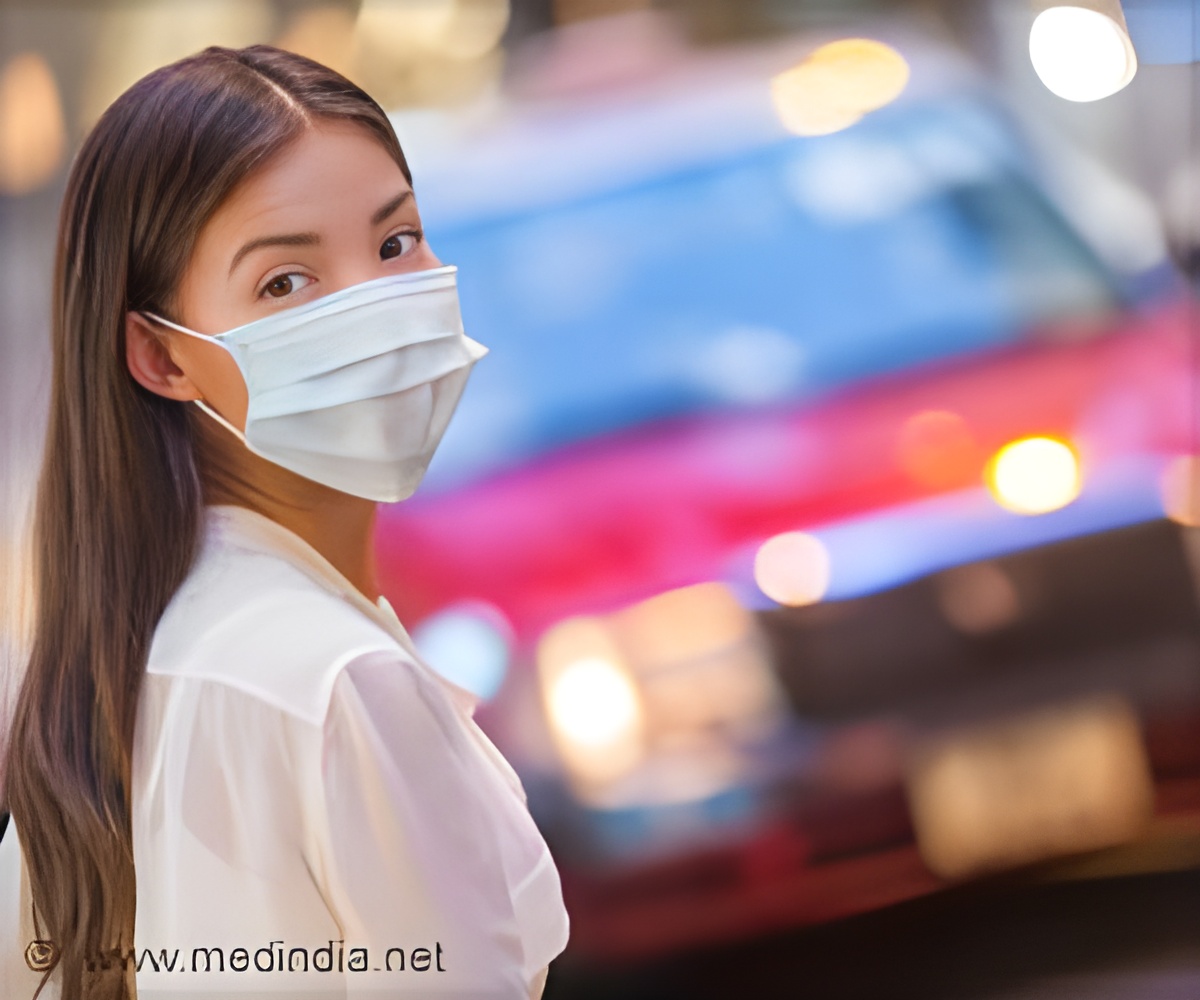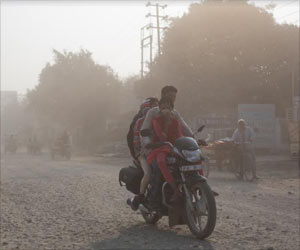Air pollution takes a toxic toll on Indian health from birth weight to mental health, suggest experts.

Air pollution kills more people in India than anywhere else in the world
Go to source).
‘Toxic air in India, silently damaging organs, and mental well-being, and causing low birth weight, is now a 'slow poison' driving up fatalities and diseases when compared to the rest of the world.
#toxicair, #health, #india, #organdamage
’





But more than the rest of the world, air pollution kills more people in India, according to the study. In 2019, it resulted in 1.67 million deaths in India. The 2019 death toll attributed to air pollution in India accounted for 17.8 percent of all deaths in the country in 2019.
In 2019, India's average particulate matter concentration was 70.3 micrograms/cubic meter -- the highest in the world. Cut to 2023, on Friday morning, the Air Quality Index (AQI) in Delhi alone surged past 500 -- a staggering 100 times higher than the limit considered healthy by the World Health Organization (WHO).
It remained around 550 for most of the day with dangerous levels of PM2.5 and PM10, along with a thick blanket of smog that also reduced visibility to less than 500 meters in some places.
Lethal Threat to Health Across India
“The number of deaths is only going to be rising with the rise in air pollution levels in our country, especially in the Indo-Gangetic belt. It’s what we're experiencing these days,” Dr. Vivek Nangia, Principal Director and head, of Pulmonology, Max Super Speciality Hospital, Saket, told IANS citing the 2019 Lancet study figures.The Air Quality Life Index (AQLI) report for 2023 by the University of Chicago’s Energy Policy Institute in August showed that air pollution is shortening lives in the national capital territory of Delhi -- the most polluted city in the world -- by 11.9 years.
Advertisement
Dr. Dhiren Gupta, senior consultant, department of pediatric, Sir Ganga Ram Hospital, calls air pollution a “slow poison”.
Advertisement
“Importantly, children are more affected as their height is less and have a faster respiratory rate than adults,” Dr. Gupta said.
Breathing in Poison
Indeed, the brunt of breathing bad air is most deadly on children under 5 years of age -- with close to 12 deaths taking place an hour in India, as per a 2016 WHO report. In 2016, 101,788 children under the age of five died prematurely due to outdoor and household air pollution.Close to seven children die every hour in India due to outdoor air pollution alone, and more than half of them are girls.
Other vulnerable groups include people aged over 60, those who already have some underlying comorbid conditions, like chronic lung disease like bronchial asthma, chronic obstructive pulmonary disease, interstitial lung disease, allergies, people who have chronic heart disease, people who have liver disease, kidney disease, brain disease, so any kind of disease, those who are on some kind of immunosuppressive therapies, Dr Nangia told IANS.
Further, two recent studies have also linked air pollution with diabetes and antibiotic resistance. Both are on the extremes in India and have the potential to turn fatal, if not addressed properly.
Each year, policymakers come up with short-term solutions like putting off construction work, closing schools, etc.
However, the need is to develop strong solutions such as putting a curb on stubble burning, adopting cleaner energy sources, and implementing stricter regulations on industrial emissions, among others.
Till then, to survive the bad air days, it is essential to “wear N95 masks when out and about, be compliant with regular medications, avoid outdoor activities in peak pollution hours, take a balanced diet, and seek medical help should the symptoms worsen,” Dr Arunesh Kumar, senior consultant & Head of Pulmonology at Paras Hospital, Gurugram, told IANS.
Reference:
- Air pollution kills more people in India than anywhere else in the world - (https://ians.in/detail/air-pollution-kills-more-people-in-india-than-anywhere-else-in-the-world--20231104005228)
Source-IANS










